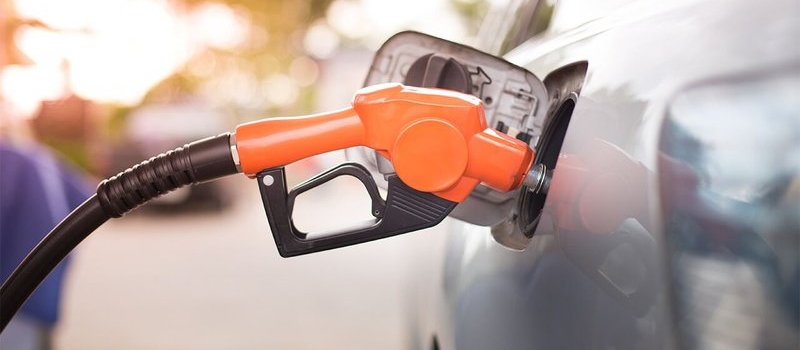Gasoline - An Everyday Hazard to Treat with Respect
Tuesday, July 20, 2021 Brenda Griffin

In May 2021, the top U.S. gasoline pipeline was shut down due to a ransomware attack. What followed was a run-on gasoline by homeowners due to shortages along with no shortage of risky gasoline handling behaviors! Perhaps you saw a few on the news:
- The women filling plastic bags with gasoline not realizing liquids should not be contained in bags! (At least she was double bagging, not that that is never a good idea.)
- A man filling several 5 gallon and stacking them inside his vehicle on their sides not realizing the containers could leak due to the improper storage position or seal.
- Another gentleman was filling his 5-gallon containers on the unlined tailgate of his truck not realizing he needed to put the container on the ground to reduce the risk of static electricity from the flow of gasoline into the container potentially sparking a fire.
Too often the hazards of gasoline become like wallpaper - the health and flammability hazards are ever present, but you fail to notice them because you regularly fill up your tanks with no issues. The thing is, just because you regularly fill up your tank with gasoline, does not mean gasoline doesn’t come with risks to always be aware of along with taking proper precautions.
Here are the risks:
Flammability Hazard– gasoline is a volatile, flammable liquid with a very low flashpoint of -40 degrees Fahrenheit. So, what this means is that vapors will form at any temperature above -40oF, and it is the vapors that catch on fire should there be an ignition source. When it comes to filling up your tank or container, ignition sources could include the running engine, your cell phone due to static, not placing the container on the ground to eliminate static from the flow of gasoline into the container, smoking or lighting a match or lighter.
This is why drivers are asked to follow posted rules at the gas station as well as storing gasoline at home including:
- Turn off your vehicle.
- Do not smoke, light matches, or lighters.
- Do not use your cell phone.
- Do not reenter your vehicle during pumping gas. If you do, discharge any static build up before reaching for the nozzle by touching something metal like the vehicle door with a bare hand and away from the nozzle.
- When dispensing gasoline into a container, use only an approved portable container (no bags!) and place it on the ground to avoid a possible static electricity ignition of gasoline vapors. Containers should never be filled while inside a vehicle or its trunk, the bed of an unlined pickup truck or the floor of a trailer.
- Fill portable containers no more than 95 percent full to allow for expansion.
- Place cap tightly on the container after filling - do not use containers that do not seal properly.
- Only store gasoline in approved containers as required by federal or state authorities. Never store gasoline in glass or any other unapproved container. No bags!
- Use only as intended. Do not use gasoline as an accelerant, a solvent, a cleaner, a degreaser, weed killer. See this video here to watch the consequences to a young wife when her husband used gasoline to extend the life of a fire in the pit in their back yard: https://www.youtube.com/watch?v=s6WZyUrATi4
- Do not use or store gasoline near ignition sources at home. The vapors of gasoline can travel to a source of ignition and ignite. Remember- it is the vapors of gasoline that ignite. Keep lids and caps tight on containers so vapors cannot escape the container.
Health Hazards – gasoline is a known health hazard. It contains benzene which is suspected of causing blood cancer. It is also an irritant. It is for these reasons that the following safety precautions should be followed:
- Stand upwind while pumping gas at the station to avoid breathing vapors.
- Avoid prolonged breathing of gasoline vapors. (Even if you are one of those types who love the smell of gasoline!)
- Use gasoline only in open areas that get plenty of fresh air.
- Keep your face away from the nozzle or container opening.
- Never siphon gasoline by mouth nor put gasoline in your mouth for any reason. Gasoline can be harmful or fatal if swallowed. If someone swallows gasoline, do not induce vomiting. Contact a doctor or and emergency medical service provider immediately.
- Keep gasoline away from your eyes and skin; it may cause irritation. If needed, put on a pair of gloves while pumping your gas and wash your hands should you get gasoline on them during pumping.
- Remove gasoline-soaked clothing immediately.
- Use gasoline as a motor fuel only. Never use gasoline to wash your hands or as a cleaning solvent.
With well-established safety habits when handling gasoline, you can reduce your risks and go about your business. And, if you happen to see someone who doesn’t know what they don’t know about the hazards of gasoline, please consider taking the time to explain best practices and why they are important!




.jpg)